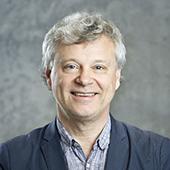SAFER Seminar: Are urbanism and mobility finally merging?
Welcome to a SAFER seminar Are urbanism and mobility finally merging? by Lars Marcus, Professor in Urban Design, Department of Architecture and Civil Engineering, Chalmers
ABSTRACT
Recent years have seen dramatic development in modelling ability and computational power, augmented by a revolution in digitalisation. This has also meant great leaps both in Mobility modelling and Urban modelling more generally. In the wake of these developments the concept of Smart Cities has emerged supporting evidence based and knowledge driven decision making. While its technological dimension is being strongly invested in, research is needed to translate these advances into the improvement of cities as lived environment on all scales, not least the lived spaces where people make their everyday choices.
In practice, these new developments have greatly influenced both transport planning and regional planning but, importantly, it has to a far less degree influenced urbanism on the more detailed level, where we find the professional practices of Architecture and Urban Design. Again, the latter is critical for sustainable urban development, since this is the scale where everyday life is lived, determining whether cities are liveable and attractive or not. Moreover, this is the scale where people make their daily decisions that ultimately drive overarching urban processes and determines to what degree these prove sustainable or not. Hence, cities are not only driven by public policy and new technologies, but to a substantial degree by individual choices and life-styles, where the latter to a fundamental degree are conditioned by cities as built environments and what such environments afford.
Chalmers has made a substantial investment to develop research and education in exactly this latter area, which in a two-year period has developed into the largest research environment in architectural research in Sweden, the Spatial Morphology Group (SMoG). There are great theoretical and methodological similarities between the type of quantitative and analytical knowledge developed in this group and the broader set of quantitative approaches in urban modelling and analysis outlined above. This means that Chalmers is unusually well prepared to link new knowledge and theory on this detailed level reflecting cities as lived environments with the new and powerful methodologies in urban analysis now rapidly emerging.
Apart from the recent rapid development in digitalisation and computational power that open new prospects for urban modelling. In short, perhaps the most important theoretical shift, with impact on both urbanism and mobility, is the acknowledgment that flows come first. This implies that the common problem for both fields is to make sense of the relation between the structure of the physical environment (places) and the processes of urban systems (flows), but whereas one earlier has conceived of cites as a set of places that need to be supported when it comes to flows (primarily traffic infrastructure), one today realises that flows rather define places.
Another piece of theory that may support the integration of the two knowledge areas is the idea about affordances. Briefly, affordances concern properties of the physical environment that create particular possibilities for human activity due to the typical abilities found in humans. Hence, the built environment, for instance, affords certain pedestrian movement patterns but hinders others, due to the physical shape given this environment in urban planning and design. This can be extended to also concern other modes of mobility so that we can speak of the general mobility affordance of the urban environment.
AGENDA
14:00 Seminar SAFER Seminar: Are urbanism and mobility finally merging? by Lars Marcus
14:45 Dialogue and questions
15:30 End of seminar
Most welcome!

